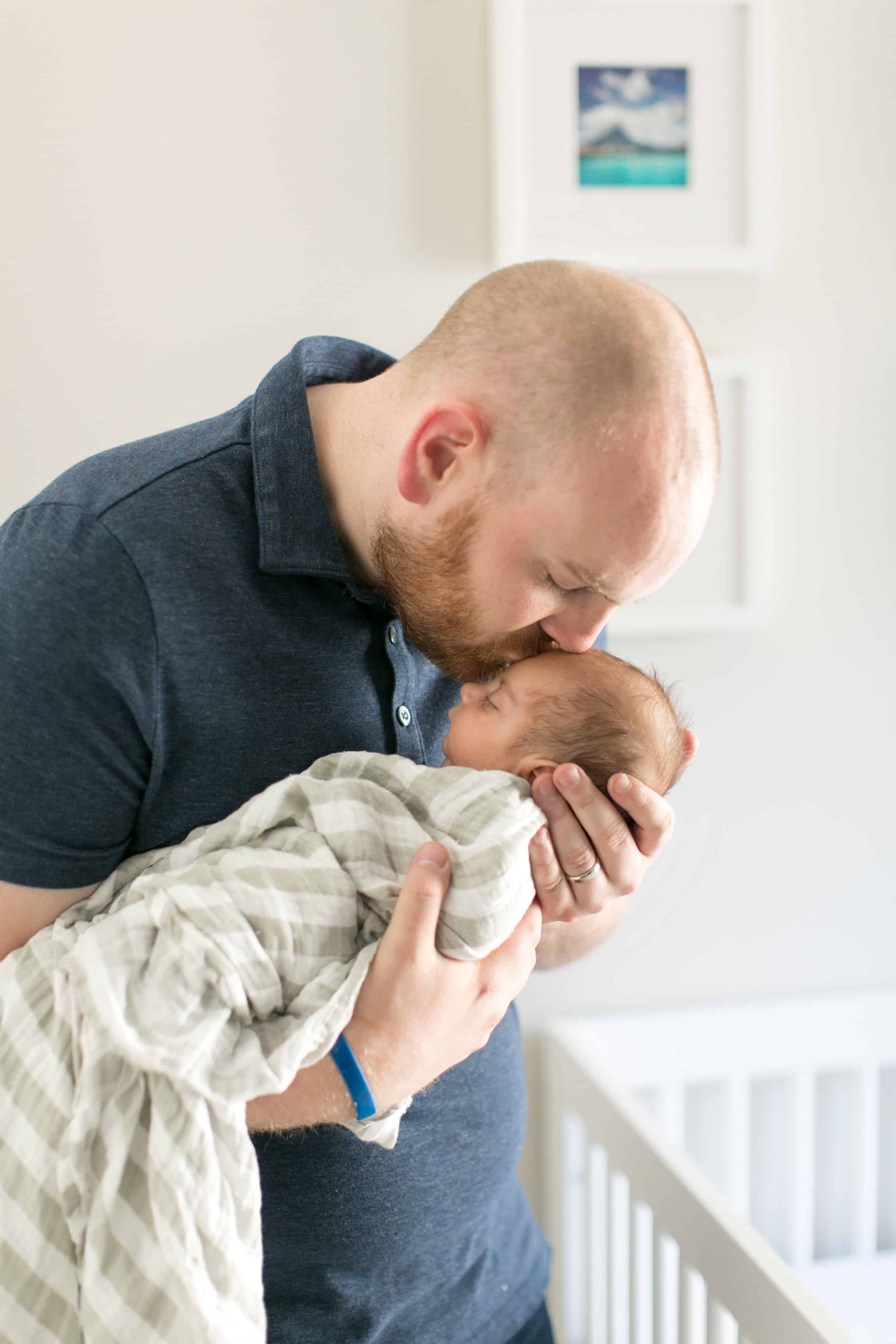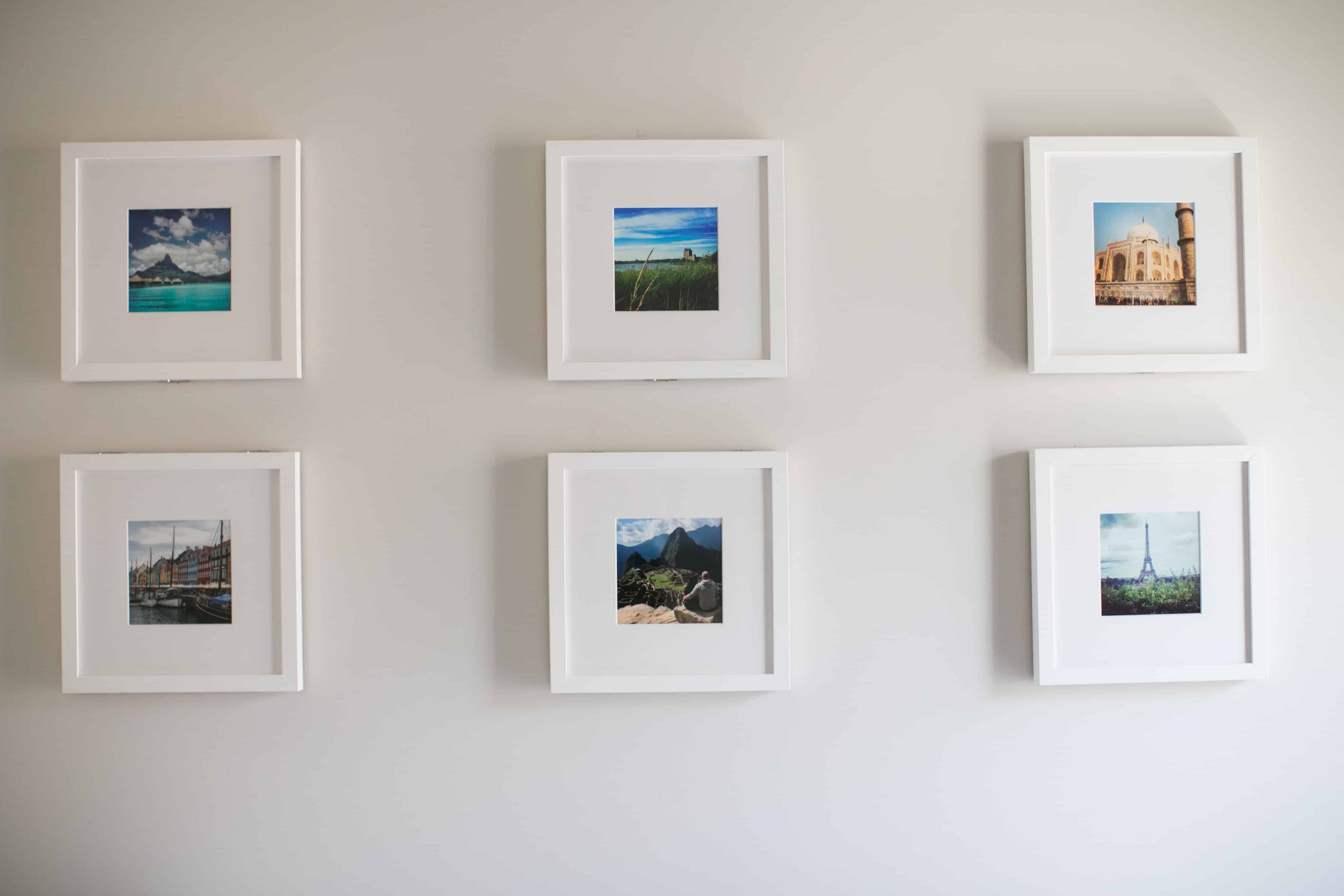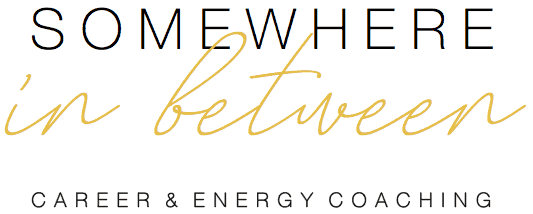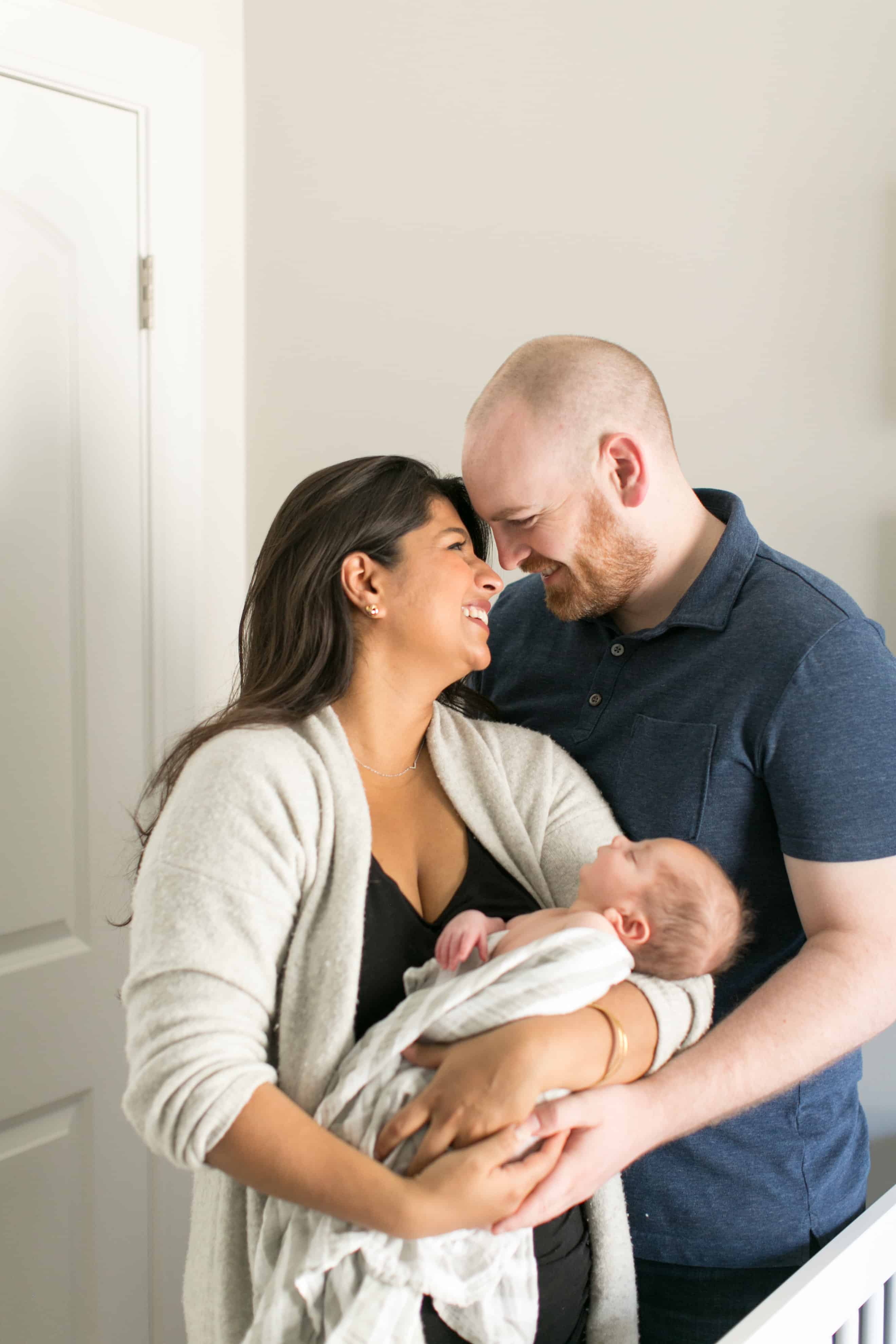I’m so excited to be sharing multicultural stories like Deeya and Brian’s, because in all the craziness that’s going on right now, I think we need to celebrate real human connection. People who are from completely different backgrounds and completely different places that are able to just find love in one human to another. The ability to take the good from both backgrounds and bring them together is incredible and just what our world needs right now.
For some background, Deeya and Brian have been together for 13 years and they have been married for 5. Deeya is Indian American and Brian is Irish American. They just welcomed their first child, who is a major cutie pie, so I sat down with Deeya to learn more about how they approached fusing their cultures as it relates to parenthood.
For us, kids was always the plan and preserving our heritage was really important to each of us.

How did you go about naming your son – Barrett Alok Tarman?
We’ve always known we like the name Barrett, from forever ago. Brian actually suggested it and I think we were in a college dorm room when we decided that would be it.
We knew Alok would be his middle name, after my Dad.
My Dad suddenly passed away when I was 8 years old and he was 34, which was a very very traumatizing experience for me. I have really great memories of him so I knew if I had a boy, Alok would be his middle name.
So for us the name is really important, especially in his case, to pay homage to my Dad. If we have another kid one day, we have other names that blend both cultures.
What were some of the multicultural aspects you discussed during pregnancy?
So Barrett is roughly 50% Indian, probably 35% Irish, 10% German, 5% the rest.
Skin color:

Brian and I are very light hearted people, we were asking each other, “are we going to have a brown baby or are we going to have a white baby?”. We had people taking bets. “What emoji are we going to use and how dark do we go?”. 👶🏼👶🏽👶🏾
My family has multicultural children and they normally come out on the lighter side, so I knew that was going to happen.
Brian made the joke of “if he’s white put him back in, he’s not cooked long enough”.
So the idea of having a white kid was totally normal to me and the idea of having a brown kid was totally normal for him. We knew at the end of the day, whatever we got, it would be perfect, and we would love them.
It will be interesting to see what he looks like when he grows up.
Ethnicity:
There’s random things that come up. For example, when you fill out hospital forms, you have to check a box on the baby’s ethnicity. What box do I check for him – I don’t know!? So one form I put Indian and one form I put “other”. It made me realize that when he fills out college applications, that will be a thing for him – what is he going to put down?
I hope he identifies with both cultures and not just one or the other.
What are some ways you are blending cultures as it relates to Barrett’s upbringing?
We have definitely made it a point to give the best of both, in everything we do.

Language:
My Mom only speaks to him in Hindi. I don’t speak Hindi, which is really sad and I wish I did, but I told my Mom she can fix that mistake. She calls him “baloo” which means bear in Hindi and I call him “bear” for short.
Similar to Indian culture, all of my friends are called “Masi” and “Auntie” or “Mamu” and “Uncle”. On Brian’s side they are “Uncle” or “Aunt”. So we’re trying to preserve it a little bit.
Books:
I like to read him books that have really positive messages. I found a book called Mixed Me, which I love. There’s a line in there that’s something like “Mom and Dad say I’m a blend of dark and light: ‘We mixed you perfectly, and got you just right'” (brb 😭😭😭). It’s so cute and I want him to feel proud of that. I want him to be like – “I’m different and that’s awesome”!
Travel:

Brian and I love to travel. It’s probably one of our passions in life. Both Brian and I had been to Ireland and India with our families, which is really cool. We hope to take Barrett one day, too.
Above Barrett’s crib we have pictures of places we’ve been. Specifically, right above him we have one of Ireland and one of India. Another way we’re trying to incorporate both cultures into his life.
How about things like religion and/or core values?
I’m actually not religious at all, same with Brian. We both identify as agnostic. I respect everyone to have their own beliefs and values.
I do want to make certain he has values. Just because you’re not religious, doesn’t mean you don’t have values. I think in life you just go to the church of ‘be nice to people’. And for us, I want to make sure he’s not just exposed to Sikhism, which is what my Mom practices, or Catholicism which is what Brian’s Mom practices, but also Buddhism and Hinduism and Islam – whatever he wants to learn about. If there is something he wants to learn about, I want to make sure that avenue is open. Maybe he will be practicing one day, I don’t know, but I don’t want to force that upon him because it becomes such a big part of people’s lives, I want to make sure he makes that choice himself.
The central tenets we want to instill in him are: take care of those less fortunate, be nice to people, don’t cause harm, etc. Regardless of the differences we might have, I don’t think these values are unique to anyone – ethnicity or region of the world – anyone can relate to those.
How has your upbringing shaped how you approach parenting for Barrett?
I like to think that being “mixed” is in my blood.
Although I was born in the US, my Mom and Dad were both from India. However, they were two different religions so I like to think that being “mixed” is in my blood. A lot of people didn’t want my Mom and Dad to be married because my Dad was not Sikh and my Mom was. My Mom did a lot of things to make sure they could be together.
After my Dad passed, my Mom re-married when I was 12. From that, I gained a Caucasian Stepfather and sister who is half Caucasian and half Indian. I also have cousins who are half Dutch and half Indian. What I love about my cousins is they relate with the Indian and Dutch side, so it’s not conflicted. We’re fortunate that Barrett will have them to relate to if he ever experiences anything based on his mixed background.
My mom changed my name because she always wanted me to feel like I was American, while still respecting my Indian heritage.
There wasn’t a whole lot of diversity in Indiana in the 80s, which is why my middle name was Adrienne (it’s my Maiden name, Bhatla, now). Even though I didn’t have a Caucasian parent, my parents started by giving me an American middle name, almost hedging their bets, in case people had a problem with my name.
My first name when I was born was actually Aditi, which is a beautiful name, but if you can’t say the Indian “d” it doesn’t work. So when I was 4 years old I was pulled out of school to legally change my name to Deeya. Since I was so young and called Deeya at home anyway, it wasn’t a traumatizing experience. It was important to my mom to make sure my name wasn’t made fun of and said properly. I think this day and age is different. People are more sensitive around names and make an active effort of trying to pronounce it better.
First generation American
Growing up, my hometown was very Indian and a lot of my friends are Indian. Although I had Indian friends, I never really felt ‘super Indian’, as weird as that sounds. My Mom always wanted me to be proud of my heritage, but didn’t want me to make it the forefront of what I do in my life. And that’s not to say that those who do that are doing anything wrong, that’s just the choice that we made as a family.
I’m almost embarrassed to admit it, but I was a somewhat of a self-loathing Indian. I never felt Indian enough for the super Indian crowd and was obviously not white enough. I believed some of the negative stereotypes of being Indian, which looking back now I’m ashamed of how I felt because I didn’t embrace the many positive sides. Today I’m definitely super proud!
What is your hope for Barrett’s future?

It’s a hopeful future. I hope when he’s older the prevalence of mixed families and non-traditional families are more common. I feel fortunate that I’m a part of the future that’s representing that.
I hope he finds love and acceptance no matter what that is in his life. Not just religiously or racially, but in all aspects of being different.
I am so appreciative that Deeya was open to sharing her story. Can any multicultural Moms relate to this? If so, I would love to hear your story to help each other in this lovely community!


Recent Comments